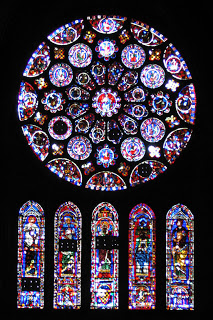Since genealogy research is highly individual and expectations and goals are internal rather than imposed by society, how do you measure success? If you were to start a weight loss program you would likely consult some standardized Body Mass Index to give you an idea of your "ideal" weight. If you were going to run a marathon you would be pacing yourself and comparing your times to what was expected from your age and condition.
Genealogy is a different type of activity. It is not competitive and there are no standards to give you an idea of what you should accomplish. If you examine your expectations in beginning a line of genealogical research and then set a goal that is short-term and realistic you can see progress and feel success despite the lack of an absolute standard or comparison to other researchers.
One of the biggest mistakes in genealogy is allowing others to determine our success. This issue is illustrated by two of the most commonly asked questions from non-genealogists when they finally understand what we are doing: first, "How far back have you traced your genealogy?" and second, "How many people do you have in your database?". From my perspective the proper question that should be asked is, "How well documented is your research?". Neither of the first two questions are in the least relevant to research.

(North Rose Window at Notre Dame Cathedral, Chartres, France, c-1235 photo copyright Guillaume Piolle / public domain, via Wikimedia Commons)
When I was an art major at the University of Utah, I took a course in Art History and learned, in part, about the building of cathedrals in Europe. This image of the North Rose Window is an example of the exquisite work done by the artisans over the more than 54 years it took to build this one cathedral. Many of the people who worked on the cathedral died long before it was finished. The same thing happened with other monumental structures, those who designed the building and started the work, failed to live long enough for it to be finished.
Maybe we should think of our work in genealogy more in terms of building cathedrals and less in terms of finishing a project. Our lives and our work are always in progression. We never really come to an end. Some people focus so much on the end that they fail to see that life itself is in the work. The work of doing genealogy has the value not the end product. Because there is really no end product. There is always another line, more documentation, more people to find and more work to be done. Is this a tragedy or an opportunity? Do we lament the fact that the workmen died before the cathedral was finished or rejoice in the opportunity they had to contribute to a worthwhile and lasting project during their lives?
We do face the same challenges day after day. We sometimes have no idea why we are doing the work and often we never live long enough to see the end product. But none of those issues determine the value of what we do. Whether we are doing genealogy or building cathedrals much of the day-to-day activity will appear the same. If we are to continue our research day after day we need to have joy in the journey and not feel like failures because the work did not get done.
Written by James L. Tanner. Used with permission.
Need help finding more records? We have genealogy research services available. You can also try our genealogical records directory which has more than 1.3 million sources to help you more easily locate the available records.